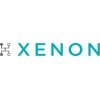
Pharmacological Modulation of Brain Oscillations in Memory Processing
EpilepsySeizures4 moreThe goal of this study is to learn about the effects of scopolamine (an anticholinergic drug) on areas of the brain involved in memory, and changes it may have on brain activity. The investigators will do this by testing epileptic patients who are already undergoing intracranial surgery for seizure monitoring, and measuring the activity from the brain areas being assessed. The main questions it aims to answer are 1) whether scopolamine changes memory activity solely at encoding (the time when the person perceives and determines to remember an item or event) as has previously been found, or if it also can selectively impact retrieval (when the item or event which has been processed is recalled or remembered), and 2) what the nature of the brain activity changes is. Participants will complete two treatment arms. One of these will be with the drug, and the other will be with a saline solution, so that the participants are unaware which session the actual drug has been received. Patients will complete a verbal and/or spatial task each of the two days. An anesthesiologist will administer either the drug or the saline at a critical point which addresses both of the research questions. Researchers will compare the brain activity between the two treatment arms to determine what brain activity changes, and at what time point during memory formation.

Roll-over Study to Collect and Assess Long-term Safety of Everolimus in Patients With TSC and Refractory...
Tuberous Sclerosis ComplexThe purpose of this study is to evaluate the long-term safety in patients with TSC and refractory seizures who are currently receiving everolimus treatment in the Novartis-sponsored EXIST-3 study and who are determined to be benefiting from continued treatment as judged by the investigator at the completion of EXIST-3

Safety, Tolerability, and Exploratory Efficacy of Adjunctive EQU-001 for Seizures in Adults With...
EpilepsyThis is a double-blind, placebo controlled, randomized study of dose-ranging safety, tolerability, exploratory efficacy of adjunctive EQU-001 for seizures using the continuous reassessment method in patients diagnosed with epilepsy.

The Safety of Intravenous Tranexamic Acid in Patients Undergoing Supratentorial Meningiomas Resection...
SeizuresMeningiomaGrowing evidence of Tranexamic Acid (TXA) being used to reduce blood loss and blood transfusions in various guidelines. However, the adverse effects of TXA especially seizure has always been a problem of concern, especially in neurosurgery. Therefore, this study aims to provide a scientific evidence for the safety of TXA in supratentorial meningiomas resection patients.

Randomized, Double-blind Study to Evaluate Efficacy and Safety of Cenobamate Adjunctive Therapy...
Partial SeizureFocal SeizureThis is a multicenter, randomized, double-blind, placebo-controlled, parallel-group, adjunctive therapy study in subjects with POS, with optional OLE. The study consists of 4 periods as follows: An 8-week of Screening/Baseline Period, 24-week of Double-blind Treatment Period (including a 18-week Titration Phase and 6-week Maintenance Phase), 52-week of Open-label Extension (OLE) Period (applicable for subjects who participate in the OLE) and up to 5-week of End of Study (EOS) Follow-up Period. The purpose of this study is to evaluate the efficacy and safety of 100, 200 and 400 mg/day of cenobamate as adjunctive therapy compared with placebo in subjects with partial onset seizures (POS). The study will also evaluate the long-term safety and tolerability of cenobamate adjunctive therapy in subjects with POS who have completed the double-blind treatment period.

An Open-Label Extension of the Study XEN496 (Ezogabine) in Children With KCNQ2-DEE
EpilepsyEpilepsy in Children6 moreTo assess the long-term safety and tolerability of XEN496 in pediatric subjects with KCNQ2 developmental and epileptic encephalopathy (KCNQ2-DEE) who had participated in the primary study (XPF-009-301).

Efficacy and Safety of GWP42003-P Oral Solution in Children With Epilepsy With Myoclonic-atonic...
Seizures Associated With EMASThe primary aim of Part A of the study to assess the efficacy and tolerability of GWP42003-P compared to placebo as an adjunctive treatment for children with Epilepsy with myoclonic-atonic seizures (EMAS) -associated seizures. Part B of this study will be conducted to evaluate the long-term safety and tolerability of GWP42003-P in participants with EMAS.

BIS-001-ER for the Treatment of Adult Focal Impaired Awareness Seizures
Focal Impaired Awareness SeizuresThe purpose of this study is to examine safety signals and demonstrate seizure reduction in adults with FIAS treated with BIS-001ER as an add-on therapy in an in-patient and out-patient study design.

Neuroimaging Biomarker for Seizures
Seizure DisorderSeizure Disorder7 moreThis multi-site study will examine patients with epilepsy (ES) following head injury [i.e., posttraumatic epilepsy (PTE)] and posttraumatic psychogenic Non-epileptic seizures (PNES) and will compare them to patients with traumatic brain injury (TBI) who do not have seizures using functional neuroimaging.

A Room Temperature Atomic Magnetrode System for Telemetry of Epileptic Seizures
EpilepsyThis study is being done to help scientists learn about the use of a device called an atomic magnetometer. The device uses sensors called optically-pumped magnetometers (OPM) which function at room temperature. This research will compare the non-invasive brain imaging application of the OPM sensors to the present SQUID-based cryogenic sensor technique used in conventional Magnetoencephalography (MEG). This study is being conducted in conjunction with the University of Colorado Boulder's Mechanical Engineering Department.
